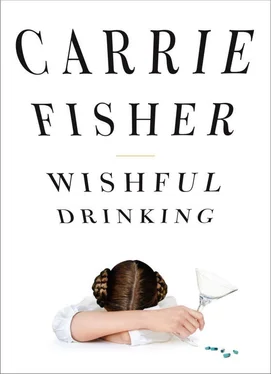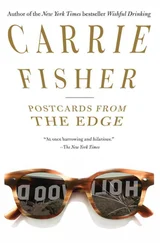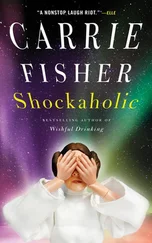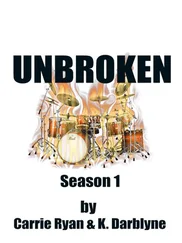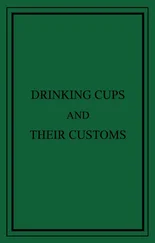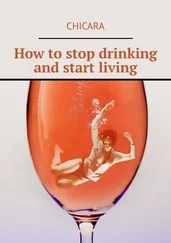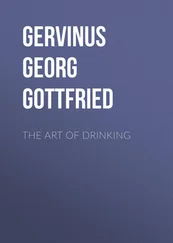That’s what I said in my head.
Out loud I said, “Absolutely. I’ll be waiting by the phone.”
Dylan wasn’t calling to ask me on a date. He was calling because this cologne company had contacted him to see if he would endorse a cologne called Just Like a Woman. Now Bob didn’t like that name, but he liked the idea of endorsing a cologne. And he wanted to know if I had any good cologne names.
Do I look like someone who would be wandering around with a bunch of cologne names rattling around in my head?
Well, tragically, I did. I did have quite a few ideas for cologne names and so I told them to Bob.
There was Ambivalence, for the scent of confusion.
Arbitrary for the man who doesn’t give a shit how he smells!
And Empathy—feel like them and smell like this.
Well, Bob actually liked those! And then he said he thought he might like to open a beauty salon, and I said, “What? Like Tangled Up and Blown?”
Anyway, a couple of weeks later, I saw George Harrison at this dinner party, as one does, so I tell him that Bob called and he said, “Don’t worry, becaue you know whenever Bob is on the road for a long time, he starts thinking about finding a regular job. You know, a job that will take him off the road.”
It turns out that Bob had phoned George the week before to see if he wanted to open The Traveling Wilburys Hotel.
So, a short time after this, I invite Bob to a party at my house, and he arrives with his girlfriend (who was my neighbor at the time) and he’s wearing a parka with sunglasses.
And I say, “Thank God you wore that, Bob, because sometimes late at night here the sun gets really, really, bright and then it snows.”
Later, at the party, I introduce Bob to Meryl Streep, and he takes her hand and says, “Oh, yeah, I know you. You were great in—”
And while he’s holding her hand, she now has to go through what turned out to be basically all of her movies, which takes a while, because his favorite turns out to be— Ironweed.
My mother doesn’t always come to my parties. She doesn’t have to really, because she’s right next door and can listen to them from across the driveway.
But she has always been there for me.
I mean, obviously she was upset about my drug addiction—what mother wouldn’t be. But on some level she wasn’t as upset as she was with my failure to do a nightclub act.
Well, that, and dating an agent. She grounded me for weeks when she found out about that. But when he ended up allegedly fathering her extraordinary granddaughter, Billie, all was forgiven.
One of my dozens of psychiatrists once told me that it’s important to be able to distinguish the difference between a problem and an inconvenience. The Oxford English Dictionary defines a problem as a thing thrown or put forward; hence a question propounded for solution, a set task, a difficult or puzzling question proposed for solution. The first use of the word was in 1382—so I suppose prior to that there was either no way to put a name to one’s difficulties—or everyone lived in a world of different levels of inconvenience. Then, after 1382, problemizing could be the order of the day. An inconvenience, on the other hand, is defined as being troublesome—this was in the mid-1600s so I imagine there were three hundred years of problems between 1382 and 1656.
But no matter what the dictionary says, in my opinion, a problem derails your life and an inconvenience is not being able to get a nice seat on the un-derailed train. Given that, I’ve had three and a half problems. A dead guy in my bed, substance abuse, and manic-depression. My final little problem-ette stems from the difficulty I seem to have in romantic relationships. Specifically, I’m referring to the last categorically “serious” relationship I had; I was left by a man for a man. Billie’s father left me for a man named Scott when she was one year old (making Scott the man who got the man who got away).
Anyway, armed with my understanding between a problem and an inconvenience, I realize I’ve been blessed with very few problems in my life. Let’s face it, to complain about my childhood or even a sizeable portion of my life would be as unattractive as it would be inaccurate. I had a very privileged life growing up. A beautiful, loving, eccentric mother; an even-tempered—and consequently odd to me—bright, kind, religious brother; a charming, handsome, womanizing yet virtually absent father; lovely grandparents; and a series of dogs and a bird. I mean I had it all. Which is to say a hearty mix of good and not so hot like so many people.
Right after I got sober (the first time), an interviewer asked me if I was happy, and I said, “Among other things.”
Happy is one of the many things I’m likely to be over the course of a day and certainly over the course of a lifetime. But I think if you have the expectation that you’re going to be happy throughout your life—more to the point, if you have a need to be comfortable all the time—well, among other things, you have the makings of a classic drug addict or alcoholic. Which is obviously what I became. But actually, through therapy and exposure to the wisdom found in twelve-step programs and beyond, I’ve gotten an enormous portion of my compulsion for comfort under control.
One night I had to go to a meeting—this three-hour meeting I’ve gone to every week for the last ten years. (By the way, no, I haven’t stayed sober that long, but my failure to achieve long-term sobriety is just that— my failure—not the failure of “the program.”) I first started going to meetings when I was twenty-eight, but it was at this particular three-hour meeting that I heard someone say that I didn’t have to like meetings, I just had to go to them. Well this was a revelation to me! I thought I had to like everything I did. And for me to like everything I did meant—well, among other things, that I needed to take a boat load of dope. Which I did for many, many years. But if what this person told me were true, then I didn’t have to actually be comfortable all the time. If I could, in fact, learn to experience a quota of discomfort, it would be awesome news. And if I could consistently go to that three-hour meeting, I could also exercise, and I could write. In short, I could actually be responsible.
But I didn’t learn this until after three of my three-and-a-half problems had occurred—the overdose, the bipolar diagnosis, and the man that got the man that got away.
It seemed like a lot of my trouble showed up in sex, it being the alleged road to love and all. In almost—well, I won’t say every other situation, but in a lot of situations, you can hardly tell that there is anything really wrong with me—I just have basically too much personality for one person and not quite enough for two. But in the area of romance, Boom!—you know right away.
When I was little—about seven, I guess—I remember getting in the car with my mother when she picked me up from school and telling her that I’d seen the word “fuck” written on the handball court at the playground and I wanted to know what it meant.
And she said, “I’ll have to tell you later, dear—when I can draw you diagrams.” Well, needless to say “later” never came and neither did—I’m sorry to report—those promised diagrams. Which is a shame, really, because I think they would’ve come in pretty handy from time to time. Armed with my mother’s diagrams I might’ve moved through the world of dating in smooth easy motions, like a queen, with that straight-backed certainty that comes with being entitled, cared for, and wearing crowns. But without those diagrams—I shuffle around like some street person, clumsy and stooped with the carriage of someone who picks through the trash, shopping for dinner.
Читать дальше
